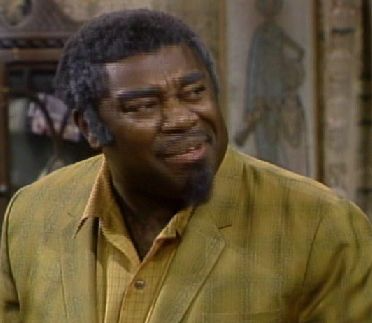
Fans of Sanford and Son remember the quick wit and hilarious banter. But nestled within those laughs were recurring characters who quietly brought the neighborhood to life. One such figure was Leroy Daniels, better known as “Leroy” the bartender, a background character who may not have had the most lines — but who was part of the very fabric of the show’s heart and soul.
Leroy Daniels wasn’t just an actor — he was a cultural figure. Long before Sanford and Son, Daniels was a tap-dancing sensation, known for his performance alongside Fred Astaire in The Band Wagon. By the time he landed his recurring role on Sanford and Son, he was a seasoned entertainer whose energy and style helped shape Black entertainment in subtle but powerful ways.

But few fans knew of his impact — or of his tragic end.
Daniels passed away in 1993 at the age of 74, mostly unknown to younger generations who had come to know Sanford and Son through reruns. There was no televised tribute, no retrospective segment — only a quiet acknowledgment in niche media. But those who worked behind the scenes knew exactly how important he had been.
Crew members recalled Daniels as a “walking archive of showbiz history.” Between takes, he often shared stories from his dancing days and from the early years of Hollywood when Black entertainers were often sidelined, despite their talent. Redd Foxx, a fellow veteran of entertainment’s rougher roads, deeply respected Daniels and often made sure he had screen time during the show’s bar scenes.
Though Leroy’s character rarely had major storylines, he was often in the background of key moments — serving drinks, making a smart remark, or simply reacting with comic timing that made scenes come alive. Daniels’ ability to do so much with so little was one of the quiet powers of the show.

After his death, some Sanford and Son fans began digging into his life and legacy, uncovering a career that had been largely overlooked. Many were stunned to learn that he had helped inspire parts of the film Tap (1989), and that Sammy Davis Jr. had once praised his skills as “pure rhythm.” To Hollywood insiders, Leroy Daniels was more than a footnote — he was part of a foundation that supported the rise of Black performers in mainstream media.
The sadness around Daniels’ death wasn’t just that he died — it was that he wasn’t celebrated the way others were. His funeral was modest, and there were no major celebrity tributes. But slowly, in fan forums and retrospective articles, his name began to re-emerge.
Today, if you re-watch Sanford and Son, you’ll spot him — always present, always real, always delivering something authentic, even when silent. The fact that Daniels could say so much with just a look is a testament to his talent.
His death may have gone unnoticed by the public at the time, but for those who truly understood Sanford and Son, losing Leroy Daniels was losing part of its beating heart.a